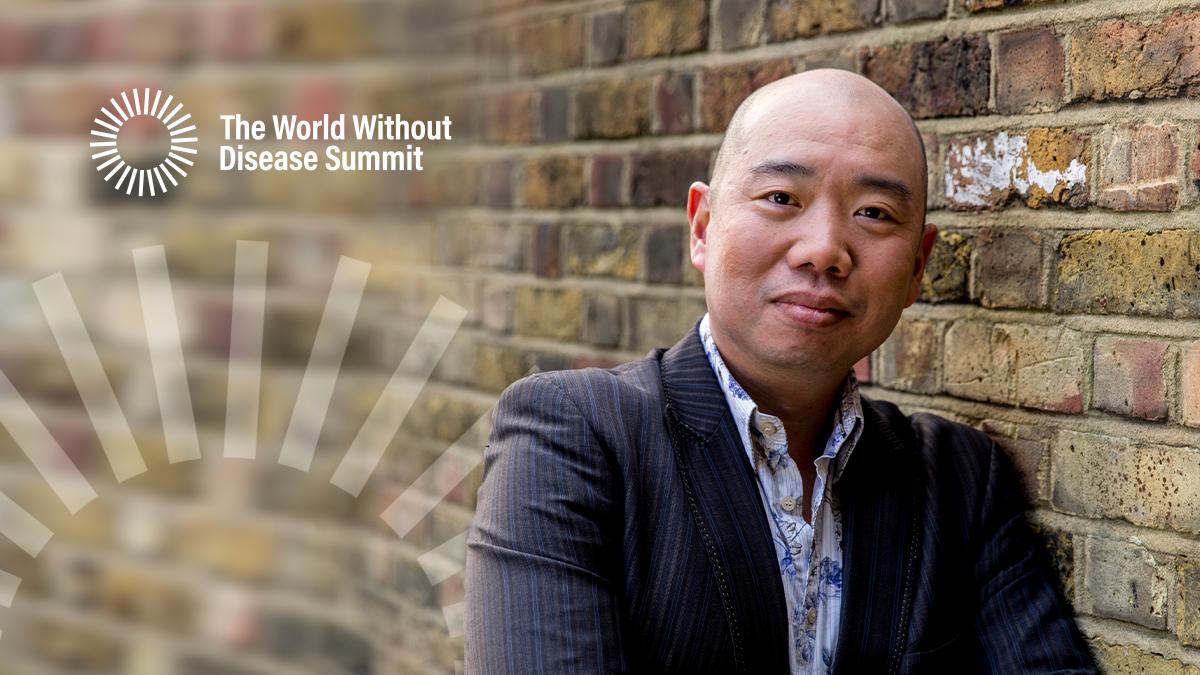Professor Giles Yeo on the genetic science of body weight

Professor Giles Yeo
At the heart of The World Without Disease Summit, set to take place on 21st June in London, is the question: how can we intercept and treat disease before it can do harm?
As the fuel to our bodies' fire, the food we eat plays a prominent role in our overall health, and not always in a good way – just ask anyone who is lactose intolerant whether dairy impacts their gut. But when it comes to discussing the impact of food on our weight, the subject becomes slightly more controversial.
Type the word obesity into any search engine, and you'll likely be met with a barrage of weight-loss 'tips', posts shaming those who fit the stereotypical 'obese' body type, and guidelines for calorie counting. Using calories to determine the energy – and often the 'value' – of food has been a staple feature of weight-loss guidelines since the turn of the 20th century. The problem, as famed geneticist, author, and Cambridge Professor Giles Yeo tells it, is that not all calories are created equal.
"Put simply, we eat food, we don't eat calories," he says. "The issue with the calorie is that it is really a good marker of how much food you're eating, but it's completely blind to the quality of the food that we're eating."
In a world in which diet-related illnesses, such as obesity, type 2 diabetes, and high blood pressure, can significantly influence our health, it is the quality of food that Professor Yeo believes should take precedence over the calorific contents.
There is good reason for this, he says. While most consumers will be familiar with the black-and-white nutrition tables printed on the back of food packaging, it may be less well-known that the kcal and kJ measurements are based on a system developed more than 120 years ago. A system that doesn't take into account the amount of energy required for metabolism.
"Depending on what we eat, our body has to work harder or less hard to then extract the calories from food, and calories are units of energy. They're all equal once they're within us as a little poof of energy, okay, but if you eat something that's fibrous, if you eat something that's high in protein, it takes more energy, more time for your body to actually get into the foods to extract the calories. Whereas if you're eating something like sugar, it's very dense and very highly available, then you're going to work less hard in order to extract the same calorie.
This discrepancy between available calories and the standard calorie counts seen on food packaging is why the type of food we eat matters, he explains. As our food system has evolved, the range and availability of processed foods have skyrocketed. Processing food products, as with cooking, changes the way that our body can extract nutrients from them. In isolation, this should not present a big issue, as consumers have a wide range of different options to choose from; however, when you add social and financial parameters, the breadth of choice becomes more limited.
Choice, particularly concerning diet, is an interesting subject for Professor Yeo to discuss. This is because how our bodies react to food may, in fact, be coded into our genes.
"Your body weight is a function of thousands of different meals, hundreds of meals," he explains. "Over that period of time, because of our genetic background influencing the choices that we're going to be making, it is not actually a choice."
Understanding how our genes influence how we behave around food is important in understanding why certain individuals are a few percentage points less likely to say no to food than others. Unlike other health traits such as blood pressure or blood sugar levels, body weight is cumulative.
"While any given meal is not going to change our weight, thousands of meals at 5% more calories amounts to hundreds of thousands of calories over time," he notes. "That is where it actually lies in genetics. The biological variation is how we feel about food, how we are driven towards food. Our feeding behaviour has a huge genetic component. It really influences our body weight, and there's very little choice that's involved over a period of time. It's like the house always wins in casino terms."
Learning how to outplay the house is a prominent challenge if diet-related illnesses are to become obsolete. That's what Professor Yeo will be discussing when he takes the stage at The World Without Disease.
You can register for The World Without Disease Summit, held June 21st at the Royal Society of Medicine in London, here.














